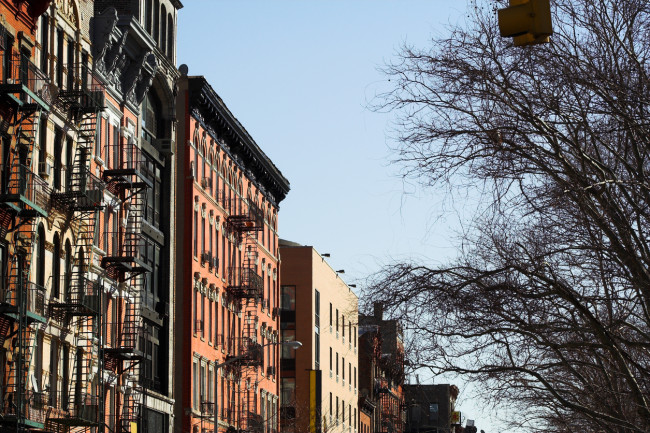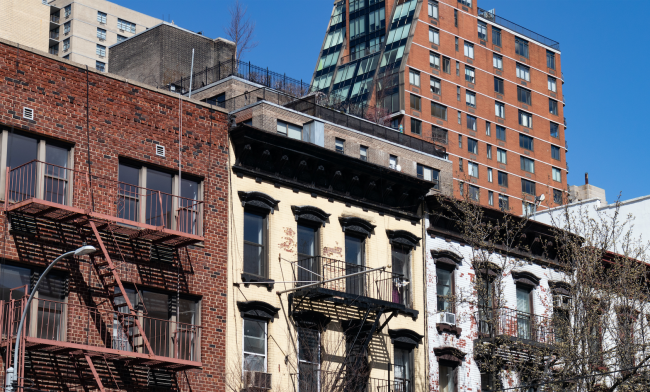What's a reverse mortgage—and how common are they in NYC?
- This type of loan can help you age in place by tapping your apartment's equity
- A bank pays you based on your home's value, rather than the other way around

A reverse mortgage can provide much-needed cash in exchange for equity in your apartment.
iStock
At the most basic level, a reverse mortgage is what it sounds like: a home loan where the bank pays you based on your home's value, rather than the other way around.
These loans can help keep a senior in their home by giving them much-needed cash in exchange for equity in their apartment. But they can make it difficult for an heir to inherit the unit when the owner dies, because that heir would have to pay back the reverse mortgage loan.
Reverse mortgages are rare in New York City condo and co-op buildings. That’s particularly true for co-ops, where they only became available in May 2022. But that’s starting to change, says Debra Shultz, vice president of lending for CrossCountry Mortgage.
“They are gaining popularity,” Shultz says. “It’s all about educating homeowners and their real estate agents and estate attorneys.”
CrossCountry has closed on 50 reverse mortgages in condos, co-ops, and multifamily properties in NYC in the past year, Shultz says.
Read on to learn about this form of financing.
[Editor’s note: A version of this story was published in May 2017. We are presenting it again with updated information for April 2024.]
So how does a reverse mortgage work?
In a reverse mortgage, a bank gets more equity in your apartment in exchange for paying out part of the value of the unit. Unlike a traditional mortgage, you don’t make regular payments to the bank until the loan becomes due, says Andrew Freedland, an attorney with Herrick Feinstein.
“In a classic forward mortgage, you make monthly payments of either principal or principal with interest,” Freedland says. “[A reverse mortgage] is the opposite.”
The bank will instead give you a lump sum, a line of credit where the limit grows as you age, or monthly payments for a set period or until you pass away, Shultz says. The principal of the loan—the amount you borrow—is then repaid when the borrower dies or sells.
Reverse mortgages are usually restricted to borrowers over the age of 60, or age 62 for co-op owners, who use their apartment as their primary residence. (So you can't live at your beach house while still collecting cash via a reverse mortgage on your Manhattan condo.) And most lenders won’t let you borrow more than 60 percent of the value of your apartment.
You can get a reverse mortgage for a set amount of time—say 15 or 20 years—or secure lifetime payments. Lenders use a formula that “determines life expectancy” to dole out payments until you pass, though if you live beyond the bank’s prediction your payments will continue until you move, sell, or pass away, Shultz says.
There are two types of reverse mortgages in New York: a Home Equity Conversion Mortgage (HECM), which is the only reverse mortgage insured by the Federal Housing Administration, and a proprietary reverse mortgage, which is governed by state law, according to the New York State Department of Financial Services (NYSDFS). Borrowers need to be at least 62 years old to qualify for an HECM.
HECMs have a maximum loan limit of just over $1 million, according to the U.S. Department of Housing and Urban Development. They also include an insurance premium—equal to 2 percent of the apartment’s value—that pays out the difference if the unit is sold for less than the loan amount, Shultz says. That keeps the heirs off the hook if the mortgage exceeds the value of the unit, she says.
What are the risks of a reverse mortgage?
Interest on a reverse mortgage loan is compounded. That means that you pay interest on both the principal and the interest that has already accrued, according to NYSDFS. So the longer the loan is outstanding, the faster the equity in your home will be eaten up to pay the interest on the amount the lender pays you.
“The balance continues to grow because you’re putting interest on top of interest,” Freedland says.
It’s also important to know that the lender can foreclose on the mortgage if you fall behind on your property taxes, property insurance, or move to a different primary residence.
And it’s unlikely your children or other heirs will be able to inherit your apartment. After you die or move, your heirs will be responsible for paying off the reverse mortgage within at most a year of your passing, Shultz says. If they can’t pay off the loan, the property will be auctioned off and the proceeds used to cover the balance. Any extra profits would go to your heirs.
Reverse mortgages also usually come with costs, including closing, appraisal, application, and attorney’s fees, though origination fees on HECM loans are capped at $6,000, according to NYSDFS and HUD.
What are potential benefits?
A reverse mortgage can allow a senior to remain in their apartment and provide the cash they need to keep up with their expenses, Shultz says.
“Instead of selling and moving out of the home they love, they can use the proceeds from a reverse mortgage to cover the maintenance and other monthly expenses while remaining in the home until they choose to sell, or they pass,” Shultz says.
Reverse mortgages are also “non-recourse” loans. That means that if you default on the loan or can’t pay it back, the lender can’t take your other assets—or your estate’s assets—to cover the remaining balance.
You should consult a lawyer, financial advisor, or housing counselor before jumping the gun on a reverse mortgage, the New York State Department of Financial Services recommends. If you live in a co-op, you’ll also have to get special permission from your board to get a reverse mortgage.
And your board might not have an existing policy on this type of debt.
“A lot of boards are looking at it, but they don’t understand the animal,” Freedland says. “They’re asking whether they should permit this in their building… I think that every co-op needs to look at their building and their shareholders to determine how to address this.”
A previous version of this story contained reporting by Virginia K. Smith.
You Might Also Like



























